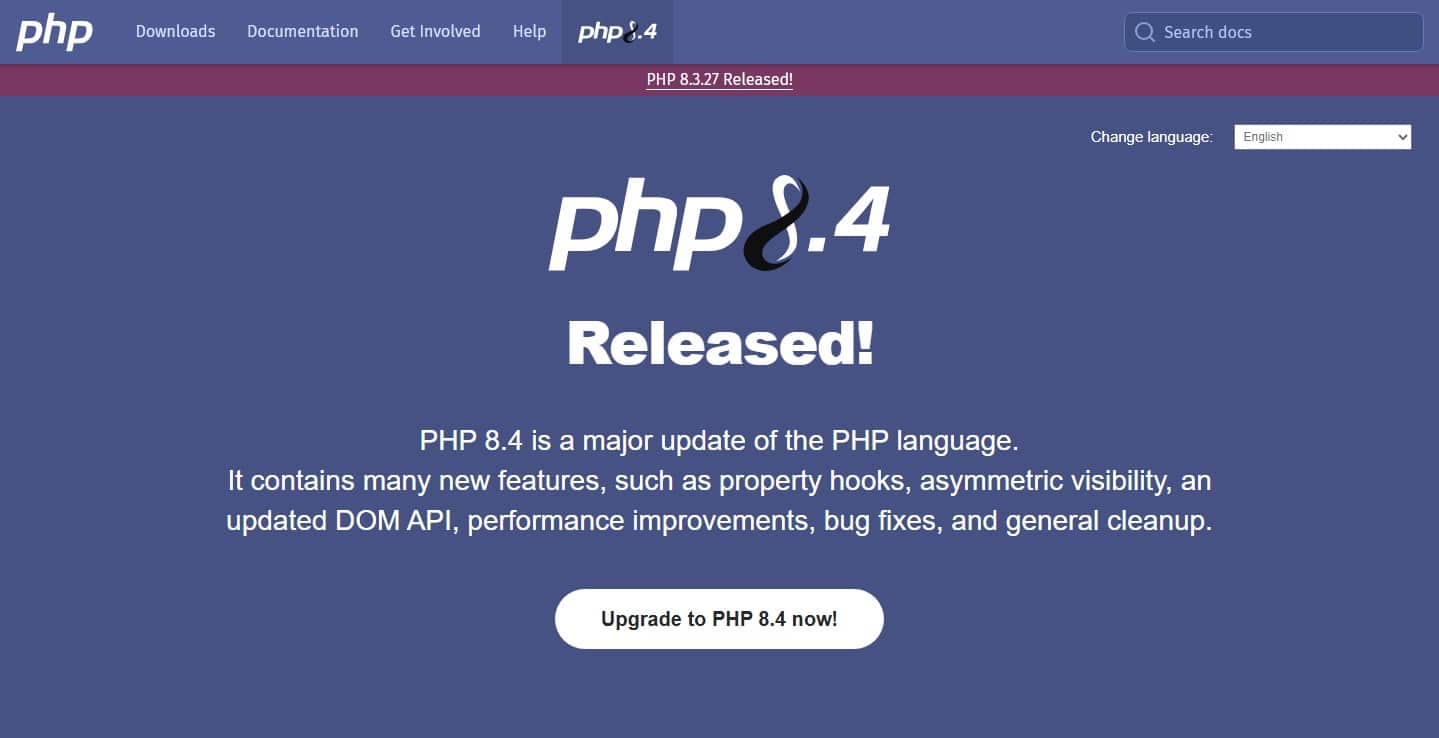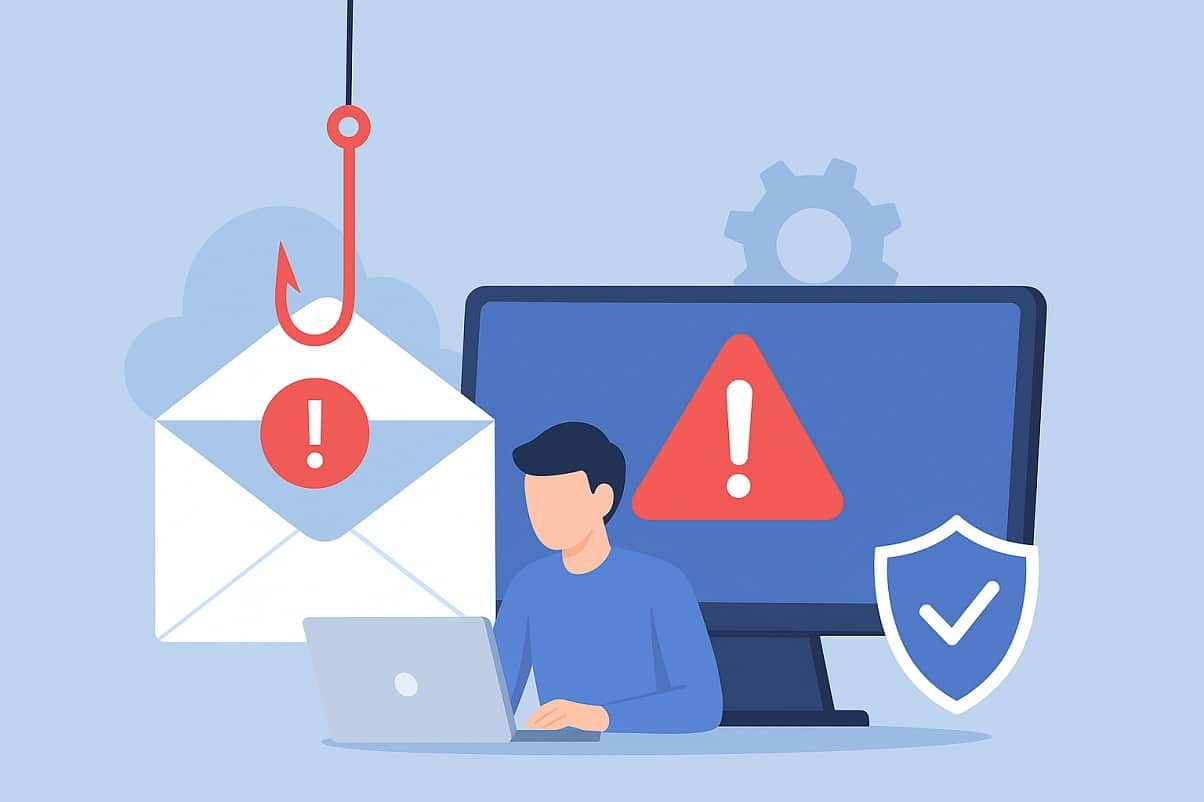Blog
Tags
PHP is the code language behind many popular content management systems used by much of the internet. WordPress Joomla Drupal and many others rely on this language to power their version of a CMS. With every major update to PHP there are always a lot of improvements and it is imperative that you update your website accordingly. This will ensure that your website remains secure fast and supported. Actually updating the PHP version is just a click of the mouse but with such an important version it
The days of visitors coming directly to your website via a Google search are largely over. Nowadays users follow a whimsical route through various platforms and devices before finally deciding to visit your website. From social media posts to YouTube videos from email newsletters to review sites every channel plays a role in the overall customer journey. At MijnHostingPartner.com we see that this behavior has a direct impact on the design of your website your content and your marketing strategy.
Perplexity is one of the biggest players in the field of AI or artificial intelligence on the internet. The focus is on using AI to better understand search results summarize them or already compile the conclusions for you. Last week the company launched its own internet browser with AI fully integrated into it. Let's take a look at what you can do with it and how it might be of interest to your work as a website administrator. If you want to install the browser immediately you can trigger it via
Research by SIDN shows that more than half of Dutch companies (58%) were the target of phishing attacks last year. Nevertheless many companies still take too few measures to protect themselves. Only a small proportion have fully implemented the most important email standards such as SPF DKIM and DMARC. Yet these are precisely the means to prevent the misuse of domain names. Fortunately we at MijnHostingPartner.nl make this much easier: we set up most of the important DNS records for you by default.
Making a domain name brandable is a term that came over from English and is the same as setting up your domain name properly for your branding. In this blog post let's discuss some tips you should consider in this. And how best to set up your domain name to generate brand awareness. What exactly does 'brandable' mean? Brandable means that a brand name is recognizable and therefore easy to remember and becomes a concept to both your customers and interested parties. You probably know brand names
If you are involved in SEO you will undoubtedly come across the concept of backlinks. These are links from other websites that point to your website. Backlinks are seen by search engines as an important factor in determining the value and reliability of your website. But beware: it's not just about the number of backlinks their quality is at least as important if not more so. In this article we explain what exactly backlinks are why they are so important for search engine optimization which free
If you have a website you naturally want to know how well it ranks in the eyes of the search engines. Not only to see how you rank now but also to determine what improvements can be made. An important indicator for this is the authority of your domain. It says something about how reliable and valuable your website is rated by search engines and external tools. The higher the authority the greater the chance that you will rank better in the search results.In this blog post we explain exactly what
Websites can be visited worldwide. If you want to market your website to the widest possible audience there are a number of factors you can consider to create the most opportunities. In this blog post we're going to look at how best to set up your website for this so you don't miss out on any opportunities! Any website that is put online on the internet can in theory be seen anywhere the internet is offered. A website that you publish on your hosting package can therefore be accessed and used worldwide
- 1
- 2
- 3
- 4
- 5
- 6
- 7
- 8
- 9
- 10
- 11
- 12
- 13
- 14
- 15
- 16
- 17
- 18
- 19
- 20
- 21
- 22
- 23
- 24
- 25
- 26
- 27
- 28
- 29
- 30
- 31
- 32
- 33
- 34
- 35
- 36
- 37
- 38
- 39
- 40
- 41
- 42
- 43
- 44
- 45
- 46
- 47
- 48
- 49
- 50
- 51
- 52
- 53
- 54
- 55
- 56
- 57
- 58
- 59
- 60
- 61
- 62
- 63
- 64
- 65
- 66
- 67
- 68
- 69
- 70
- 71
- 72
- 73
- 74
- 75
- 76
- 77
- 78
- 79
- 80
- 81
- 82
- 83
- 84
- 85
- 86
- 87
- 88
- 89
- 90
- 91
- 92
- 93
- 94
- 95
- 96
- 97
- 98
- 99
- 100
- 101
- 102
- 103
- 104
- 105
- 106
- 107
- 108
- 109
- 110
- 111
- 112
- 113
- 114
- 115
- 116
- 117
- 118
- 119
- 120
- 121
- 122
- 123
- 124
- 125
- 126
- 127
- 128
- 129
- 130
- 131
- 132
- 133
- 134
- 135
- 136
- 137
- 138
- 139
- 140
- 141
- 142
- 143
- 144
- 145
- 146
- 147
- 148
- 149
- 150








